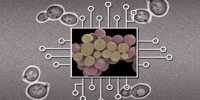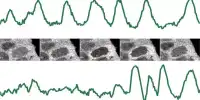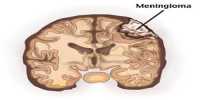During pregnancy, many women experience intense food cravings for specific meals. You’ve surely heard stories about loved ones being dispatched at all hours to find a specific brand of bacon double cheeseburger or rocky road ice cream to satisfy a pregnant mother’s craving. Perhaps you’ve experienced an intense need to splurge personally.
Many people have experienced the sudden and overpowering desire to eat a particular meal. These desires, known as cravings, are highly frequent, especially during pregnancy. During this time, the mother’s body goes through a series of physiological and behavioral changes in order to provide a favorable environment for the embryo’s development. However, the frequent consumption of tasty and high calorie foods derived from the cravings contributes to weight gain and obesity in pregnancy, which can have negative effects on the baby’s health.
“There are numerous myths and popular ideas about these desires, but the neural mechanisms that create them are not well understood,” says March Claret, lecturer at the University of Barcelona’s Faculty of Medicine and Health Sciences and leader of the IDIBAPS Neuronal Control of Metabolism Group. Claret co-leads a study published in the journal Nature Metabolism with researcher Roberta Haddad-Tóvolli that gives new information on the changes in neural activity that drive cravings in an animal model.
There are numerous myths and popular ideas about these desires, but the neural mechanisms that create them are not well understood. These findings are shocking, given that many of the research have focused on determining how the mother’s permanent behaviors, such as obesity, starvation, or chronic stress, affect the baby’s health.
March Claret
Dopamine and compulsive eating behaviour
According to the findings, the brain of female mice undergoes alterations in the functional linkages of the brain reward circuits, as well as the taste and sensorimotor centers, during pregnancy. Furthermore, female mice, like pregnant women, are more sensitive to sweet meals and develop binge-eating behaviors toward high calorie items. “The modification of these structures prompted us to investigate the mesolimbic pathway, which is one of the signal transmission channels of dopaminergic neurons. Dopamine is a neurotransmitter that plays an important role in motivated behavior” Claret, a member of the UB Department of Medicine and the Diabetes and Associated Metabolic Diseases Networking Biomedical Research Centre, elaborates (CIBERDEM).
So your food desires are most likely all in your brain, a result of pregnant hormones. Hormonal changes during pregnancy heighten the sense of smell (which greatly influences taste) and have the potential to influence dietary choices.
“It’s likely that women who are feeling queasy, bloated, exhausted, or cranky as a result of the impacts of pregnancy hormones look for foods to boost their comfort level,” says Elisa Zied, a registered dietitian and American Dietetic Association spokesman. “Some women who starve themselves when they aren’t pregnant see pregnancy as an opportunity to indulge in foods they normally shun.”

The researchers noticed an increase in dopamine levels and the activation of its receptor, D2R, in the nucleus accumbens, a brain region implicated in the reward circuit. “This data suggests that pregnancy causes a complete rearrangement of the mesolimbic neural circuits via the D2R neurons,” Haddad-Tóvolli says. “These neuronal cells – and their modification – would be responsible for the cravings, because food anxiety, which is common throughout pregnancy, vanished after limiting their activity.”
Claret and Haddad-team Tóvolli’s demonstrated that prolonged desires have effects for the children. They disrupt metabolism and the development of brain circuits that govern food intake, resulting in weight gain, anxiety, and eating disorders. “These findings are shocking, given that many of the research have focused on determining how the mother’s permanent behaviors, such as obesity, starvation, or chronic stress, affect the baby’s health. However, this study found that short but recurring behaviors, such as cravings, are enough to raise the offspring’s psychological and metabolic sensitivity” Claret concludes.
The foods that women prefer are, in fact, healthy options. Dairy products, for example, are high in protein, calcium, and other nutrients, and are among the top foods desired by pregnant women, according to the March of Dimes. When Dolan was pregnant, all she wanted to drink was cranberry juice. Cranberry juice fortified with calcium or vitamin C is a wonderful source of calcium and vitamin C, as well as a variety of other minerals required during pregnancy.
The conclusions of the study could contribute to the improvement of nutritional guidelines for pregnant women in order to ensure a proper prenatal nutrition and prevent the development of diseases.
















